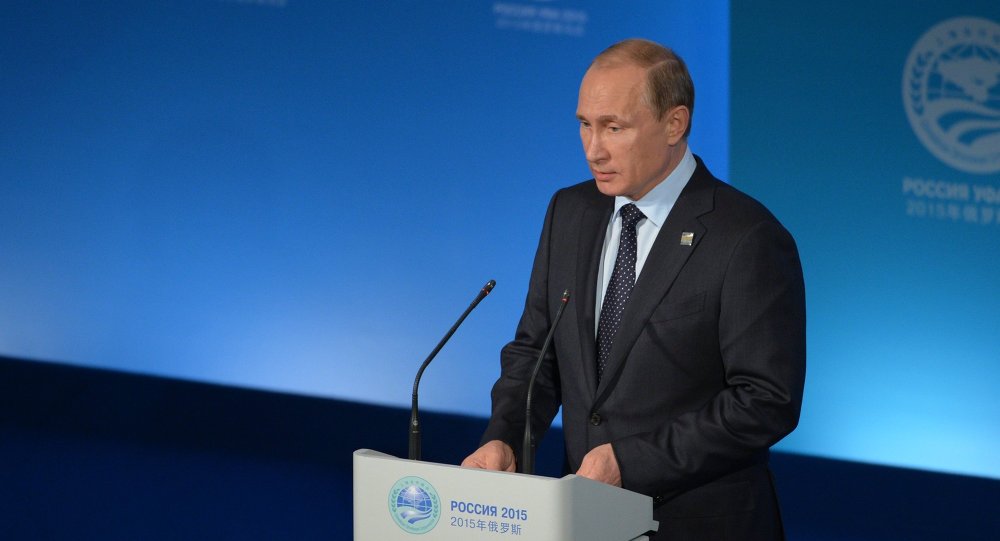
The Ufa Summits were so wildly successful that most media outlets couldn’t keep track of everything that transpired.
The most widely known achievements to have come out of the BRICS and SCO Summits in Ufa are the BRICS New Development Bank and India and Pakistan’s joint accession to the SCO, but that doesn’t mean that they were the only takeaways. In fact, there were quite a lot more to these events than those two major announcements, but such news unfortunately took a backseat in the face of the headline-dominating coverage that was previously mentioned. Let’s shed some light on the biggest stories that deserve more attention from the media:
BRICS
BRICS At The Backdoor To Europe:
The New Development Bank could potentially assist non-EU member states with their development projects. When asked about the possibility of cooperating with Macedonia and Serbia, two European states that are not part of the EU, Luciano Coutinho, the President of the Brazilian Development Bank, responded that “Those are the periphery of the European Union.
They deserve attention, they are not fully developed economies, and I think the New Development Bank could take action in the future.” This remarkable announcement means that the Balkan countries not yet in the EU actually have a choice over their developmental future and prospective partnerships, breaking the monopoly that Brussels was previously thought to hold over the region’s future.
The consequences of this impactful quote could lead to the population of each country pressuring their respective decision makers to hold off on Euro-Atlantic integration, understanding that so long as they’re not yet (if ever) in the EU (which is undergoing an existential crisis due to Greece), their states have the fantastic opportunity to establish a privileged relationship with the world’s most dynamic economic grouping, BRICS.
Can BRICS Rebuild Syria?:
The New Development Bank has repeatedly clarified that it is an alternative complement to existing financial institutions, not a rival, and that it seeks to carry out the same functions as its Western-dominated alternatives.
The IMF and World Bank, for their part, provide loans to help rebuild war-torn countries, and this has been part of their agenda for decades already.
Accordingly, given the New Development Bank’s emphasis on emulating its established counterparts, it would make sense for it to take on a similar role as well.
When asked about whether or not BRICS could help rebuild Syria, the country that UN Secretary General Ban Ki-Moon recently declared is suffering “the worst humanitarian crisis of our time”, President of the New Development Bank Kundapur Vaman Kamath revealed in another interview that “We’ll give a thought to this [providing reconstruction aid to Syria]… In the coming months, this will be thought through.” If BRICS chooses to offer some kind of reconstruction assistance to Syria, then this would strongly signal that it has succeeded in fulfilling its stated goal of satisfying all the functions of its financial predecessors, as well as presenting a fair and multipolar alternative to the unequitable and politically demanding conditions imposed by its Western counterparts.
SCO
Economic Evolution:
One of the most important developments to happen in the SCO space has been the positioning of the group as a facilitating infrastructure bridge between Russia and China.
Chinese diplomat Gui Congyou stated that “Our leaders have already agreed that the two parties will consider SCO as the most convenient forum for the realization of this agreement” to integrate the Silk Road and Eurasian Economic Union, meaning that the Central Asian states and Mongolia will serve as bridgeheads in expanding trade between two of Eurasia’s largest economies.
The second-ever trilateral meeting between Russia, Mongolia, and China took place on the sidelines of the Ufa Summit, and the leaders agreed to a memorandum to establish an economic corridor between them in the future.
Concerning Central Asia, it could serve as the geographic point of convergence between Russia, China, and India’s economic interests, and it must be noted that Prime Minister Modi just visited the region prior to his arrival in Ufa.
If all three Eurasian members of BRICS can use the SCO in finding a common economic understanding for Central Asia, that that region could realistically experience unprecedented development that would guarantee its stabilization for generations.
Pan-Eurasian Expansion:
Lost amid the flurry of reporting related to India and Pakistan’s upgraded relationship with the SCO has been the news that a handful of diverse countries all across Eurasia are interested in joining the organization as well. While the two South Asian states were already observer members to begin with, the new applicants would be formalizing their ties for the first time. According to Dmitry Mezentsev, the General Secretary of the SCO:
“Belarus, Azerbaijan, Armenia, as well as Cambodia, Syria and Egypt, the Republic of Maldives, a number of other countries are requesting observer or partner status. Sri Lanka wishes to raise its status within the organization. This is a very important fact for us, such a number of applications indicates that the organization is alive, rapidly growing and gaining authority and influence in the region.”
If these members are successfully integrated in whatever capacity it may be, then it would demonstrate the continental reach of the SCO, and could possibly set the stage for it becoming a ‘concert of powers’. After all, rival states such as India and Pakistan, and Armenia and Azerbaijan, would be under the same grouping, and this could allow Russia, China, and others to more constructively assist with mediating their conflicts’ resolutions.
The incorporation of Syria might even lead to the organization robustly supporting Damascus in its War on Terror, which might be what President Putin was intimating when he suggested the creation of a new international coalition against ISIL late last month. If christened, then this could see weapons, advisors, intelligence, and associated multilateral strategic support offered up in the fight against ISIL.